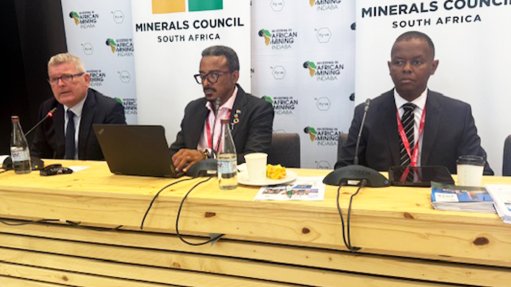Amazing functional stupidity
Functional stupidity, a phenomenon that is often encountered in workplaces, refers to a situation where smart people refrain from speaking up when they are convinced that tweaking the way their organisation goes about its business will do the organisation a world of good. At the root of such behaviour is a fear of reprisals or simply a desire to not rock the boat.
Clearly, there are many downsides to functional stupidity. For one, bad organisational practices are perpetuated, and this could lead to financial meltdown and even organisational collapse.
However, there are management gurus who swear that a dose of functional stupidity can be useful, at least in the short term, as it can nurture harmony and encourage employees to get on with their jobs. This is what the experts refer to as the stupidity paradox.
I found myself thinking about the functional stupidity of African leaders, at least those in West Africa, when Burkina Faso’s military government was toppled on September 30. This was the second coup d’état in the country this year, the first having been staged in January.
In the immediate aftermath of the coup, the regional bloc, the Economic Community of West African States, despatched a delegation to meet with the new military leader of the former French colony. After that meeting, the delegation pronounced that it was “confident” and that it stood by the “Burkinabè people in the very difficult ordeal they are going through”. The statement was devoid of any direct admonition of the soldiers who had shot their way to power and are now ensconced in State House in the capital city, Ouagadougou.
Could this stance be attributable to functional stupidity – a desire by West African leaders to have comradely relations with the soldiers who are now in charge of Burkina Faso and thus ensure there is harmony within the region?
If this is indeed the rationale behind the lack of explicit condemnation, I don’t discern any stupidity paradox – that is, a positive outcome of functional stupidity – flowing from the West African leaders’ reticence. Only negative consequences will ensue, and here I am talking about a never-ending cycle of coups on the continent, as soldiers who feel like exchanging their military fatigues for a politician’s business suit will feel emboldened to do so.
Coups were frequent occurrences in Africa in the decades after independence – that is, from the 1950s to the 1990s – with an average of four reported each year during this period. The number dropped to an average of two in the two decades from 2000 to 2019, giving rise to hopes that the day was nigh when military takeovers on the continent would be a thing of the past.
Yet, only three years into the decade of the 2020s, Africa has experienced a much higher average number of coups than between 2000 and 2019. While only one coup occurred in 2020 – in Mali – six attempts, both successful and otherwise, were reported in 2021 and we have had the two Burkina Faso coups so far this year.
It’s my view that ostracising the coup plotters instead of issuing silly statements mentioning how “confident” a regional body may be in a new military government will be an effective deterrent.
By the way, it’s not only the West African leaders who suffer from functional stupidity. Here in Southern Africa, our leaders are always harping on about non-existent economic sanctions against Zimbabwe, which they say are responsible for the country’s economic woes. I’m sure in their heart of hearts they know it’s all to do with mismanagement – they simply don’t want to upset their brother leaders.
How I miss Levy Mwanawasa, the late Zambian President – he would not shy away from calling a spade a spade.
Article Enquiry
Email Article
Save Article
Feedback
To advertise email advertising@creamermedia.co.za or click here
Comments
Press Office
Announcements
What's On
Subscribe to improve your user experience...
Option 1 (equivalent of R125 a month):
Receive a weekly copy of Creamer Media's Engineering News & Mining Weekly magazine
(print copy for those in South Africa and e-magazine for those outside of South Africa)
Receive daily email newsletters
Access to full search results
Access archive of magazine back copies
Access to Projects in Progress
Access to ONE Research Report of your choice in PDF format
Option 2 (equivalent of R375 a month):
All benefits from Option 1
PLUS
Access to Creamer Media's Research Channel Africa for ALL Research Reports, in PDF format, on various industrial and mining sectors
including Electricity; Water; Energy Transition; Hydrogen; Roads, Rail and Ports; Coal; Gold; Platinum; Battery Metals; etc.
Already a subscriber?
Forgotten your password?
Receive weekly copy of Creamer Media's Engineering News & Mining Weekly magazine (print copy for those in South Africa and e-magazine for those outside of South Africa)
➕
Recieve daily email newsletters
➕
Access to full search results
➕
Access archive of magazine back copies
➕
Access to Projects in Progress
➕
Access to ONE Research Report of your choice in PDF format
RESEARCH CHANNEL AFRICA
R4500 (equivalent of R375 a month)
SUBSCRIBEAll benefits from Option 1
➕
Access to Creamer Media's Research Channel Africa for ALL Research Reports on various industrial and mining sectors, in PDF format, including on:
Electricity
➕
Water
➕
Energy Transition
➕
Hydrogen
➕
Roads, Rail and Ports
➕
Coal
➕
Gold
➕
Platinum
➕
Battery Metals
➕
etc.
Receive all benefits from Option 1 or Option 2 delivered to numerous people at your company
➕
Multiple User names and Passwords for simultaneous log-ins
➕
Intranet integration access to all in your organisation


















